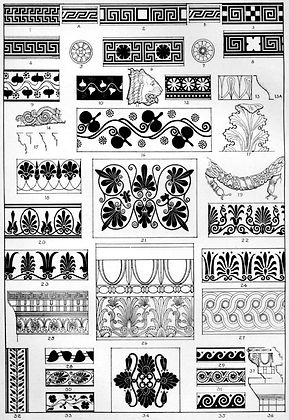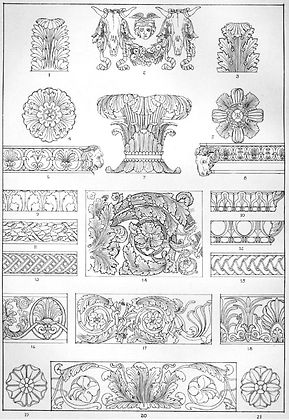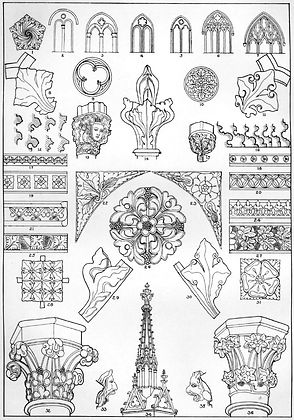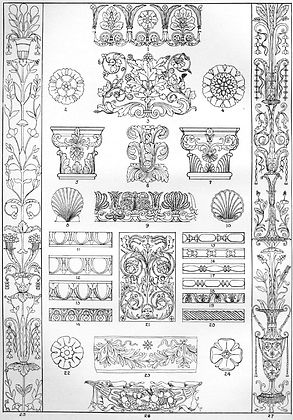MOTIFS
Sources of Memorial Ornamentation

EGYPTIAN
natural forms such as lotus and papyrus. vultures, feathers, winged sun disk (Ra).
geometric patters including spirals, circles, zigzags, and s-scrolls. architectural forms like caveto cornice, columns, and obelisks.
GREEK
natural forms such as vine, laurels, anthemion flower, lions and sheep. geometric patterns include Vitruvian scroll, spirals, egg and dart, and frets.
architectural forms like mouldings dentils, cornice, beed and reel, festoon/swag.


ROMAN
natural rinceau, festoon, garland, ox skull, sheep, lion.
architectural domes, vaults, and arches.
GOTHIC
Also known as Romanesque. France Britain and Germany had their own styles. architectural designs include pointed arch, tracery, ribbing, pinnacles, and buttresses.
symbolic and pictorial elements, natural foliage, flower, and leaves.


RENAISSANCE
developed in Italy. acanthus, anthemion, rosette, rinceau, festoon, water leaf, egg and dart, bead and reel.
CELTIC
intricate geometric designs with diagonal and spiral lines. some animals, bur few natural forms and no architectural features.


COLONIAL
18th century American. Similar to Georgian style of England. architectural details similar to wood carving.
fans, fluting, reeding, scroll, broken pediment, urns, guilloche.
